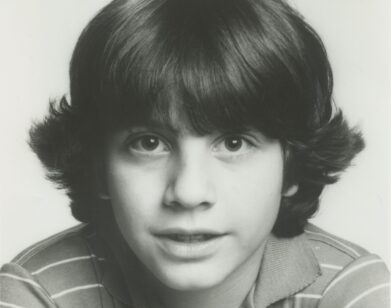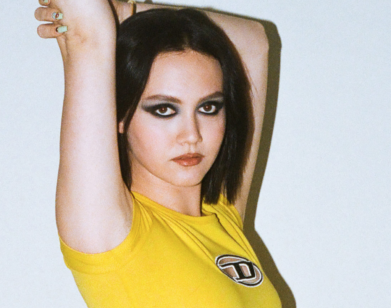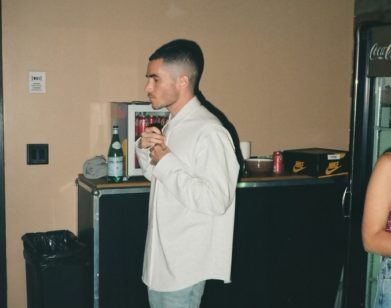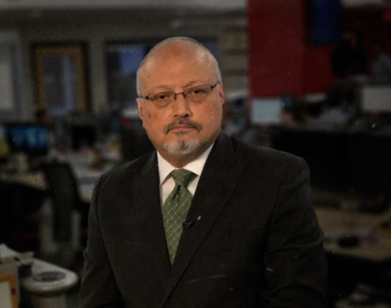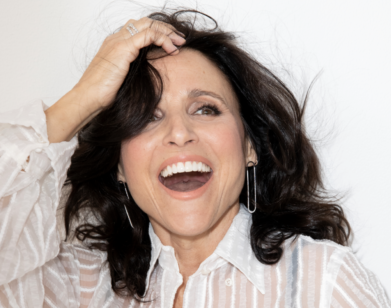Paul Feig and Brent Hodge on why Freaks and Geeks was the best show of all time
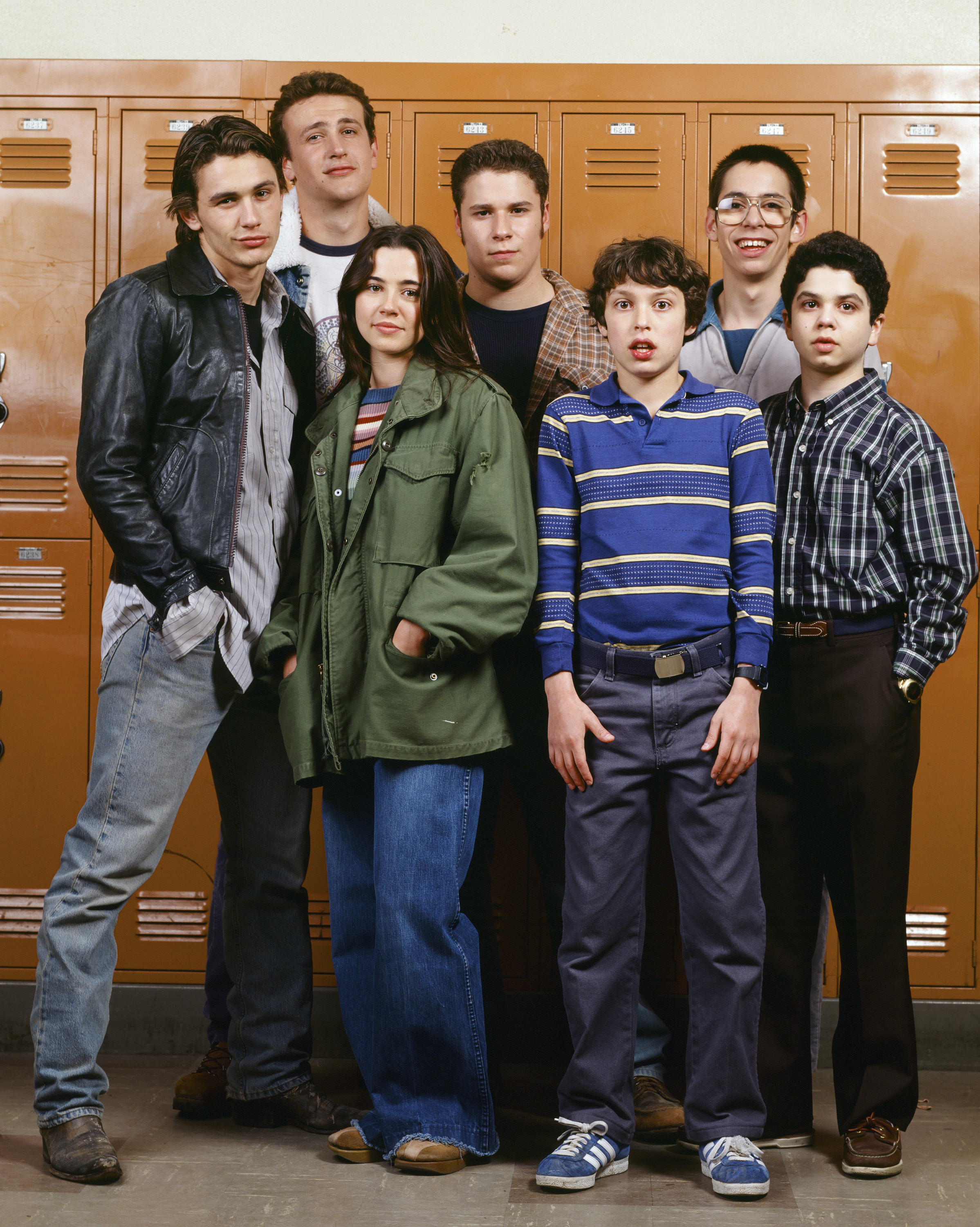
IMAGE COURTESY OF CHRIS HASTON/NBC
In 1999, if you were a teenager trying to make sense of your high school’s lunchroom politics and the classroom’s social order, desperately looking for reassurance that the torment of your awkward years was normal, you weren’t going to find it on TV. Unless you watched Freaks and Geeks. For a very brief moment—if you could manage to find it on air—it was the thing for “normal” teens. Paul Feig, tapping into his worst memories from high school, created the ultimate series about adolescence. In the 18 years since Freaks and Geeks was on the air, no other show has been able to match its heady mix of raging hormones.
For years, fans have puzzled over why this groundbreaking show, easily ahead of its time, was cancelled after just 18 episodes. Freaks and Geeks is still ranked as one the best shows of all time, but it got less than one standard season. Brent Hodge, who has directed a new documentary about the show’s making, wanted to shed some light on what happened. He rounded up the entire cast, crew and some NBC executives to create Freaks and Geeks: The Documentary—which he hopes will be the definitive one. It’s set to air as part of A&E’s Cultureshock series later this year. In conjunction with the film’s premiere at the Tribeca Film Festival, Interview spoke to Hodge and Feig about Freaks and Geeks’s legacy and the big takeaways from the documentary.
The Odd One Out on NBC
Freaks and Geeks didn’t fit into the sitcom mold. There weren’t three jokes per page, which was the TV industry’s standard. Luckily, NBC was in a period of transition and several executives fell in love with the pilot. They didn’t even have any changes to its script. That didn’t last long, however. NBC did eventually balk at certain plot points. For example, the network didn’t allow the “Kim Kelly Is My Friend” episode, about Kim’s volatile home life, to reach the air. It first saw the light of day on Netflix.
BRENT HODGE: It did not seem like it could be a show NBC would air. There’s no laugh track. There’s no audience. It’s not a sitcom. It’s not a drama. It’s somewhere in between. It’s single camera. There are no victories. It’s an awkward-looking cast. They have a lot stacked against them. [Their cancellation] all kind of made sense to me when people started telling me, “We were up against Who Wants to Be a Millionaire?” I was like, “Oh my God, that’s it.” That’s the era we’re talking about, where it was just on five to six nights a week. Man, imagine trying to [air a show] on a Saturday night and actually get a crowd in. On top of that, they were getting higher ratings. if you look at it today, seven million hits per show is huge.
PAUL FEIG: We didn’t compromise anything. That’s what I love about the show. There’s not one frame of that show that I could point to and say, “We didn’t want to do that, but the network forced us to do it.” But that’s also why I think we ended up getting cancelled.
The Man Who Killed the Show
Freaks and Geeks die-hards consider Garth Ancier to be the worst person on the planet. The NBC executive is criticized for not “getting” the show and systematically killing Feig and Judd Apatow’s baby by not airing it consecutively and putting it in the worst time slot, Saturday nights at 8 P.M.
FEIG: When Garth Ancier came in he was making more demands on it, about letting them have victories and letting the show be more upbeat—[stuff] that we just didn’t want to do. It probably poisoned the waters a little bit when our ratings were low for them to then not want to give us another year. We also were not a cheap show, compared to what they could make with game shows. We were much more expensive and so we kept our dignity and stuck to our guns. It probably killed us, but I’m glad that we did, because now we have 18 episodes of something that we’re all very proud of.
HODGE: He’s hated in this situation. He is a villain. He did cancel the show. But Garth has done some really great things in the film industry, too. He’s also the guy who kept Family Guy on the air [and] the reason Buffy the Vampire Slayer is around. I respect him for just wanting to tell his side of the story, but also being quite empathetic to the fact that he maybe did make a mistake.
The Easter Eggs
The school Freaks and Geeks filmed at was rented out for the documentary. Hodge wanted to put fans back in the world of Freaks and Geeks and tapped into that nostalgia by recreating sets and using everything, down to Neal’s ventriloquist dummy.
HODGE: We wanted to do a little bit of an homage to the super fans. There’s all these hidden little things. Jason was the first one when we really went for it with the props. We’re like, “I don’t know if he’s gonna be cool around drum kits.” We never asked him. When he sat down, he was excited. He was like, “This is the coolest.” As soon as you do one or two, you can’t go back. If we had done 10 more, I probably would have gone overboard. We’re redesigning Sam Weir’s bedroom to the T, trying to find the exact posters. This is getting out of hand. Calm down.
FEIG: When I showed up to the set to do my interview, I asked, “Well, why are we doing it at a house?” I get in there, and he’s recreated Sam Weir’s bedroom. That was the moment where I said, “Wow, this guy is really gonna go for it and make this great.”
The Behind-the-Scenes Footage
Freaks and Geeks writer and supervising producer, Gabe Sachs, essentially has a Freaks and Geeks museum in his house, which came in handy for shooting this documentary. He also filmed on set of Freaks and Geeks, between takes and special occasions, including the cast and crew’s wild wrap party.
HODGE: I went over to [Sachs’s] house and he had this whole room, a bedroom, full of Freaks and Geeks memorabilia. He had the leather jacket, the Parisian night suit, he had early scripts and photos, and the Norseman head. He had everything you could want. I couldn’t believe it, then he handed me this box of mini-DVDs—one hour long. We have hundreds of hours of behind-the-scenes of Seth Rogen being 16 years old or Jason Segel going over his lines. Judd’s 32nd birthday is on there; he’s blowing out candles.
FEIG: It was kind of a wrap party in a way, even though we kind of knew the writing was on the wall. We just wanted to have a big celebration. It just felt like the right thing to do to have everybody dress that way. Everybody liked to hang out and that was just a natural extension of that. Let’s have like a prom. Let’s have this fun thing that’s on the theme of our show. We even made yearbooks that we gave out to everybody, just to complete the circle of the theme of high school.
The Reaction to the Show’s Cancellation
No one on the cast and crew has been shy about voicing their frustrations about Freaks and Geeks getting cancelled, but in the documentary, Feig and, especially, Apatow explained how the cancellation affected their careers.
FEIG: I was exhausted by the time the show ended, because my mom died two days before we got cancelled. When we got cancelled, it was like one more thing—life is just pounding me at the moment. I was more sad than enraged. I think Judd channeled it into rage and revenge and I just channeled it into depression. To me, the characters all died when the show got cancelled. And that to me was really sad, because I had so many other stories I wanted to tell. For me, it was more of a defeat, and Judd was in more of a powerful position than I was at that time. Thank God he kept using them, because look at what’s happened, they’re all superstars.
HODGE: They [Judd and Paul] wanted to make sure these kids worked. It was in their hands that young child actors moved to L.A. to be on a show and now it’s cancelled. It was also a sort of revenge mission [for Judd]. “You guys don’t think these guys are stars? We’re going to make them stars. I don’t care if they’re not Hollywood-leading men. They’re funny and they’re great.”
Revisiting Freaks and Geeks
It’s been 19 years since the show’s pilot aired. The cast and crew has largely shut down the possibility of a reunion series as no one sees a reason for it, but Hodge has some hopes for Gabe Sachs’s old DVD footage.
FEIG: It was fun looking back on it, but it’s painful sometimes. The show just kind of ended very unceremoniously. We were such a tight-knit family and it was such an important show to me, because it was such a personal show. I haven’t really watched it much in the intervening years since it was on, because I find it kind of painful sometimes to watch it.
HODGE: With the documentary you’re reminding people, ‘Oh my god, this is so great.’ You’re not creating a new script. You’re not creating new characters. You’re just reminding people of that story again. So to have that archive footage, that’s exactly what you need for these things to shine. As soon as that happened, I was like ‘OK, this is a film.’ This could be a series. We have that much stuff.
FEIG: This was like really a life mission for a lot of us to tell these stories. That’s why I created the show. For years, I had watched high school portrayed in movies and TV shows, kind of soap opera-type things with beautiful kids. I would watch those shows and feel like an alien. Our show was on 99-2000, but I wanted to set it in 1980 because the emotions of being a teenager, your chemical makeup at that time, is the same. The cultural references around you are different and sort of the circumstances based on technology that’s around you change, but the feelings and emotions and the insecurity, everything about it is universal. Teenagers have always been out of their minds—in a beautiful way. I like that it’s set in a time before the Internet, before cellphones, before social media… it just portrays how people have been relating to each other and not being able to hide behind things.
FREAKS AND GEEKS: THE DOCUMENTARY WILL BE RELEASED LATER THIS YEAR.

